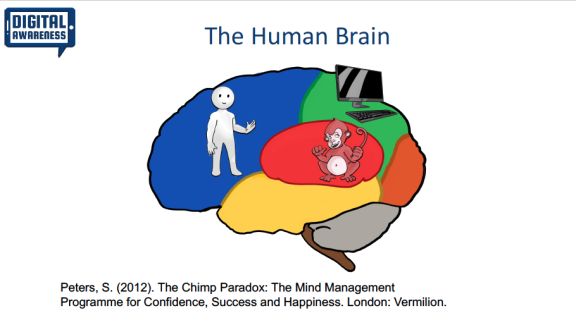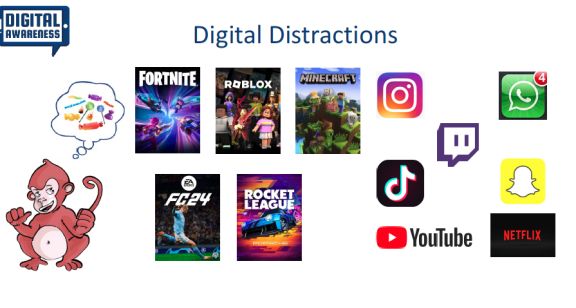By Ingrid Schmoutziguer, communications advisor
Laurens Veltman started the evening by sharing his experiences as a gaming addict openly and honestly with the audience. His addiction started when he was 14 years old and lasted until he was 19 years old. His wake up call was failing his secondary school exams.
Veltman since studied psychology, wrote a book about his gaming addiction (you can find 'Dagboek van een gameverslaafde' in the school library) and starting his own company, Digital Awareness, helping parents and teenagers engage with the digital world in a healthy and safe way.
Is it easy for your child to quit?
To get an idea about the audience Veltman took them through a Mentimeter quiz in which parents were asked to answer questions like, 'How many hours a day does your child spend in front of a screen?', 'Is it easy for your child to quit if they are using a screen?', 'Do you show any interest in the online world of your child?' and 'Are you being a good example to your child in screen usage?'. It immediately led to some interesting data and discussions. Most if not all children find it hard to quit, what they are doing online which Veltman explained by sharing insights in most gaming and other platforms where the player needs to secure a level before data are being saved. 'Just imagine you have been working really hard on a project and the minute you quit all you work disappeared', he said. ' This is exactly how it feels for your child when they need to stop playing immediately. It is much better to give them a warning telling them they have 10 minutes left'.
Veltman also stated that how many hours children spend online is not the right question; it is much better to ask yourself what they are doing online. 'Swiping through TikTok for 2 hours for example is not beneficial to the brain, because it is a very passive pass time and the clips on TikTok are incredibly short, which isn't great for their attention span', he said. 'To play a game, or design a building, village or system in the digital world on the other hand, children use a lot of brain power and creativity.'

Monkey Brain vs Human Brain
The part of the brain Veltman calls the 'human brain', is the rational side of your child. In this 'mode' your child can make agreements on how long they can play a computer game and they also recognise that watching TikTok while they are supposed to do their homework isn't a great idea. When they do grab their phone or turn on their computer game, your child's 'monkey brain' takes over. In this 'mode' they receive instant gratification, rewards (likes /points/levels) which makes it incredibly difficult to stop playing/watching. Veltman: "There is absolutely no point to tak to your child about any agreements when the monkey brain is active, so it is best to wait for a calm moment when your child hasn't been behind a screen for some time.'

Tips
Veltman's tips on how to communicate openly to your child and build a relationship of trust:
- Get to know your child's online world an how digital temptations work.
- Explore the digital world together and guide your child through the do's and don'ts.
- Accept that they will see some specific things.
- Do not disapprove of their digital world, but instead offer trust.
- Don't let yourself focus only on the negative side of the digital world.
- Be aware that your child wants to fit in.
- Work together on a plan in which you as a parent sets the boundaries of what is allowed/not allowed.
- Lead by example!
